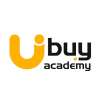Crucial On-Page SEO Elements & Best Practices for Stellar Search Rankings!
Unlocking the Secrets: Mastering On-Page SEO for Top Search Engine Rankings!

In the world of online marketing, Search Engine Optimisation (SEO) is still very important for success on the internet. On-page optimisation is a crucial part of SEO to help a website get better rankings on search engine results pages (SERPs). Understanding the main components of on-page SEO is very important for businesses or people to do well in the tough marketing industry. For that, you need a solid base. That is why, apart from telling you about the elements and best practices, we will recommend tips for finding the best SEO institute in Jaipur and other cities. So, let’s stop dawdling and dive into the good part.
Elements of On-Page SEO
There exist a myriad of on-page SEO elements to be taken care of, such as:
Keyword Research and Optimisation
A strong on-page SEO plan starts with careful keyword research, which means finding and adding valuable keywords to your content. Use tools like Google Keyword Planner, SEMrush, or Ahrefs to find many not-hard-to-beat keywords. Put main and secondary keywords naturally into your content, headings, and meta tags. It will help search engines read them well and find them easily.
Content Quality and Relevance
Creating useful and interesting content for your audience is the pulse of on-page SEO. Using a readable vocabulary is important to make your content easy to read and liked by people. Keeping your content fresh is also important. It helps you show expertise in your domain while building a good connection with online users and search engines.
Title Tags
Users first see title tags when they look at your content on search engine results pages. They play a big part in getting SEO right for that specific page. You should have strong, short title tags (usually 60-70 letters) that reflect your content. Inserting the primary keyword early in the title makes it easier for search engines to understand and gets more people's attention for better click rates.
Meta Descriptions
Meta descriptions are like short summaries for search engines. They are often overlooked when working on SEO for web pages. These 150-160-character bites help you rank higher by matching your content with target users.
Header Tags (H1, H2, H3 etc.)
Organising your content with header tags is very important for on-page SEO. These labels increase your content’s readability while improving search engine rankings. Using keywords in headings like H1 and H2 helps search engines crawl through your content better. A well-built header system helps with SEO and creates a fun user experience.
URL Structure
How you build your website's URL is very important for on-page SEO. Clear and simple URLs with keywords provide a better user experience while increasing the likelihood of users clicking on your page through search engines.
Image Optimisation
Pictures catch your eye and are very important for on-page SEO. Using clear file names and including alt texts with correct keywords is important during image optimisation. Smaller pictures help web pages load faster, improving the user experience.
Internal Linking
Internal linking arranges pages and helps with easy navigation. Your internal linking words should be clear and important so users can understand its content.
User Experience (UX)
User experience is very important for on-page SEO. A user-friendly website needs intuitive navigation, simple interfaces, and mobile-friendly pages. As Google emphasises mobile indexing, understanding the importance of a smooth phone experience is necessary. Quick page load times improve user experience and search rankings.
Page Speed
The time it takes for a website to load significantly affects user experience and SEO rankings. Smaller images, local caches, and reduced cookie disclaimers can help your pages load faster. Google's focus on page speed as a ranking factor means you must prioritise these factors.
Best Practices for On-Page SEO
The best practices for performing effective on-page SEO include:
Regular Content Audits
Content audits are proactive measures that can be used to ensure the effectiveness and relevance of your on-page SEO strategies. Identifying outdated or under performing content lets you decide what should be updated and optimised.
Mobile Optimisation
2019 marks the mobile-first indexing age whereby this must be an imperative objective instead of being optional to optimise for mobiles. Make sure your website is mobile-friendly and offers a great user experience. In short, testing the website on different devices ensures all users have a seamless experience that enhances search rankings and user satisfaction.
Schema Markup
Schema markup is a structured data vocabulary that gives search engines more context about what your content means. Adding schema markup will develop richer, better-looking, informative snippets in your search results. By adopting schema markup, you not only increase the chances of getting a click but also help search engines understand your content more deeply.
Secure Website (HTTPS)
Website security is a consideration of user trust and comes into play with SEO. HTTPS is the secured version of Hypertext Transfer Protocol, and using it ensures encrypted communication between your site or application users. HTTPS adoption is a wise move in your on-page SEO strategy, as evidenced by Google’s preference for secure websites and ranking algorithms.
Canonical Tags
Canonical tags play a vital role in resolving duplicate content issues by informing search engines of the preferred page version to use. By applying canonical tags thoughtfully, you lead search engines to understand the main information source, reducing potential ambiguity and ensuring that only a correct page is endowed with the authority of a search engine.
User Engagement Metrics
User engagement metrics such as bounce rate, time on site and pages per session offer valuable insights into the effectiveness of your content. User metrics also indicate high-quality, engaging content has higher user ratings than your audience. If you monitor these metrics on an ongoing basis, then this will guide your content improvements and browser-optimised SEO strategy adjustments.
Regular Monitoring and Adjustments
The digital environment keeps evolving, so you must follow the changes in search algorithms and user behaviours. Analytics tools track your website’s performance, user interactions, and ranking keywords to help you better adjust your strategies to an on-site SEO plan. It is an ongoing mechanism to ensure that your SEO results are always compatible with the best practices and trends in this industry.
How to Find the Best SEO Training Near me in Jaipur?
On-page SEO for your site involves steps that favour user experience. Once you familiarise yourself with the elements of on-page SEO and follow the best practices outlined above, boosting your website’s visibility in search engines will be easy. Learning the best marketing practices is important to stay relevant and ahead of competitors. Searching for the best SEO institute in Jaipur or other cities in India? We’ve got you! Prioritise hands-on training and great placement opportunities after your course. These factors ensure your career gets wings and you get a headstart in the job market!
About the Creator
Ubuy Academy
Ubuy Academy is an IT training institute in Jaipur where students get to choose from a broad selection of IT courses that assist them in building a career in the ever-expanding IT industry.






Comments
There are no comments for this story
Be the first to respond and start the conversation.